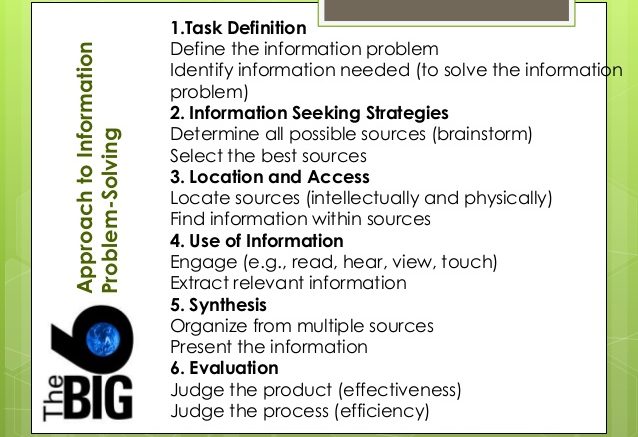Successful information problem-solving encompasses six stages with two sub-stages under each:
1. Task Definition
1.1 Define the information problem
1.2 Identify information needed in order to complete the task (to solve the information problem)
2. Information Seeking Strategies
2.1 Determine the range of possible sources (brainstorm)
2.2 Evaluate the different possible sources to determine priorities (select the best sources)
3. Location and Access
3.1 Locate sources (intellectually and physically)
3.2 Find information within sources
4. Use of Information
4.1 Engage (e.g., read, hear, view, touch) the information in a source
4.2 Extract relevant information from a source
5. Synthesis
5.1 Organize information from multiple sources
5.2 Present the information
6. Evaluation
6.1 Judge the product (effectiveness)
6.2 Judge the information problem-solving process (efficiency)
This method is used by Big6™ to teach information literacy in schools.

Be the first to comment on "Information problem-solving"